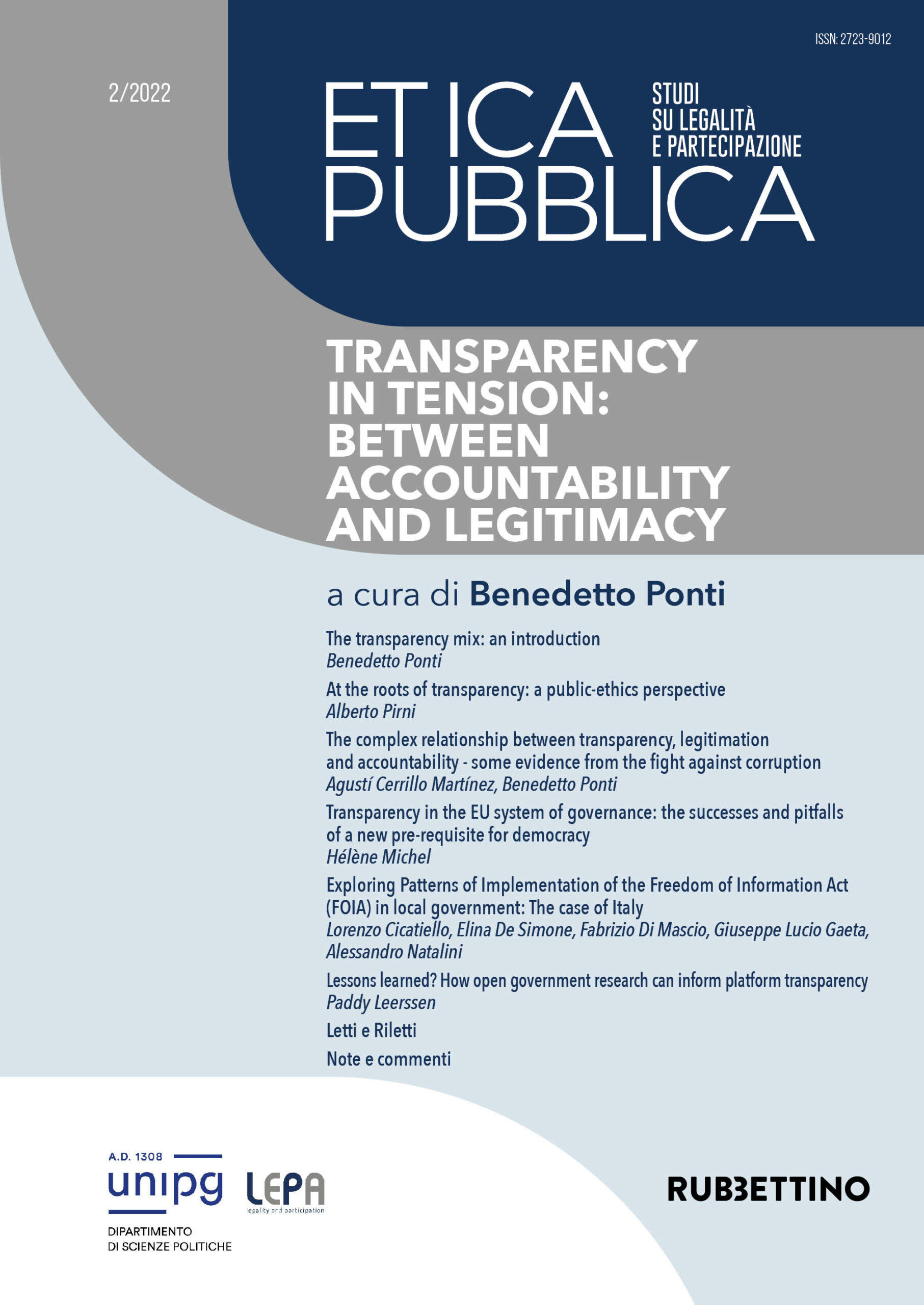Transparency in the EU system of governance: the successes and pitfalls of a new pre-requisite for democracy
DOI:
https://doi.org/10.1400/291096Abstract
Transparency has become one of the European Union’s watchwords and one of the main responses to very different threats to democracy (corruption, conflicts of interest, influence peddling, lobbying, poor public trust, abuse of fundamental rights...). How is it that transparency has become the only successful response to such a varied range of problems? How does the transparency solution, when reduced to just being the obligation to disclose and publish information, affect the way the EU functions? In the tradition of political sociology, the article examines the political and social forces that have given shape and form to transparency that is reduced to just making information publicly available. By focusing on the various uses of transparency, it sheds light on the paradoxical effects of transparency on access to information, the clarity of procedures and political participation. More generally, the article shows that disclosure of information is not enough and may lead to unintended consequences such as development of bureaucracy, exclusion of citizens, and promotion of lobbying.





